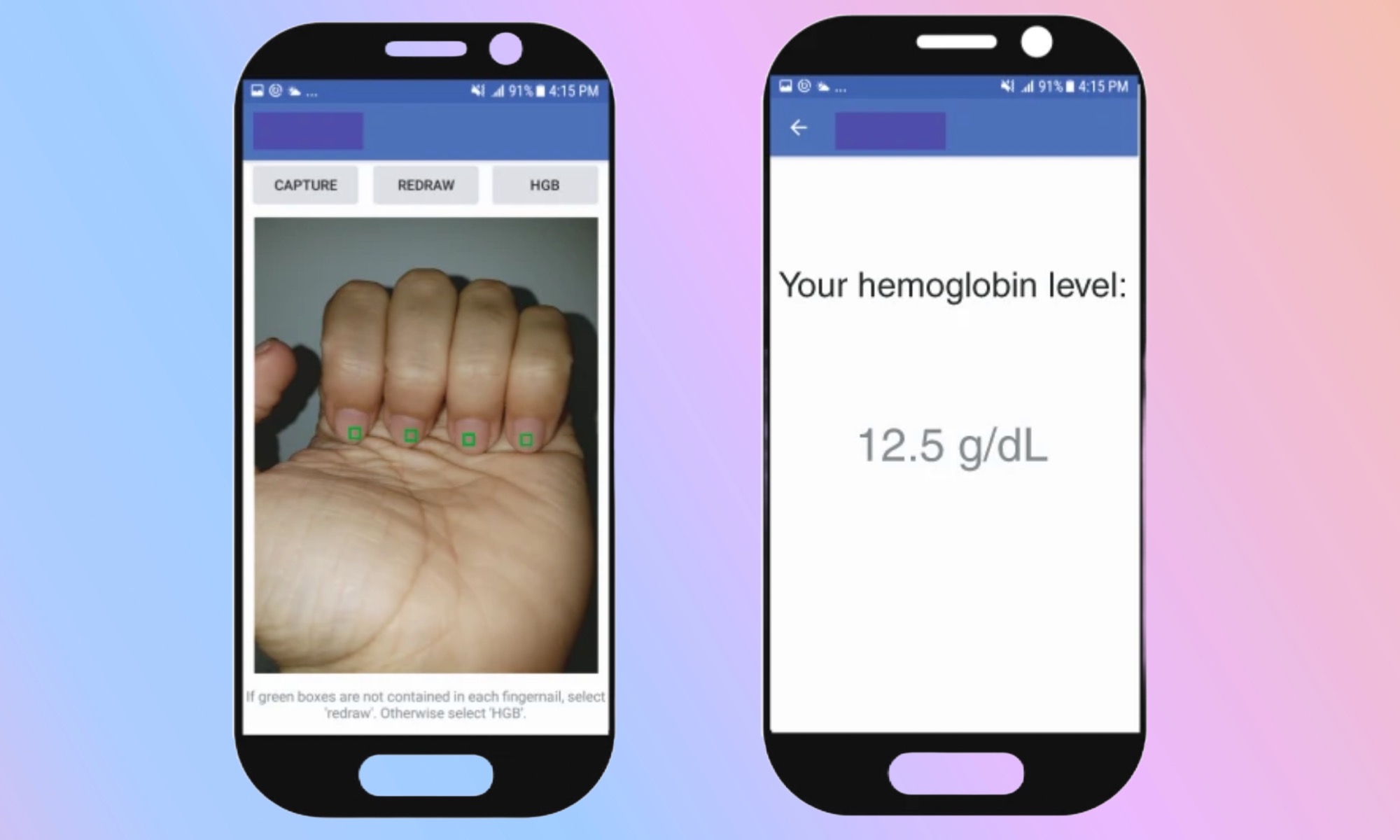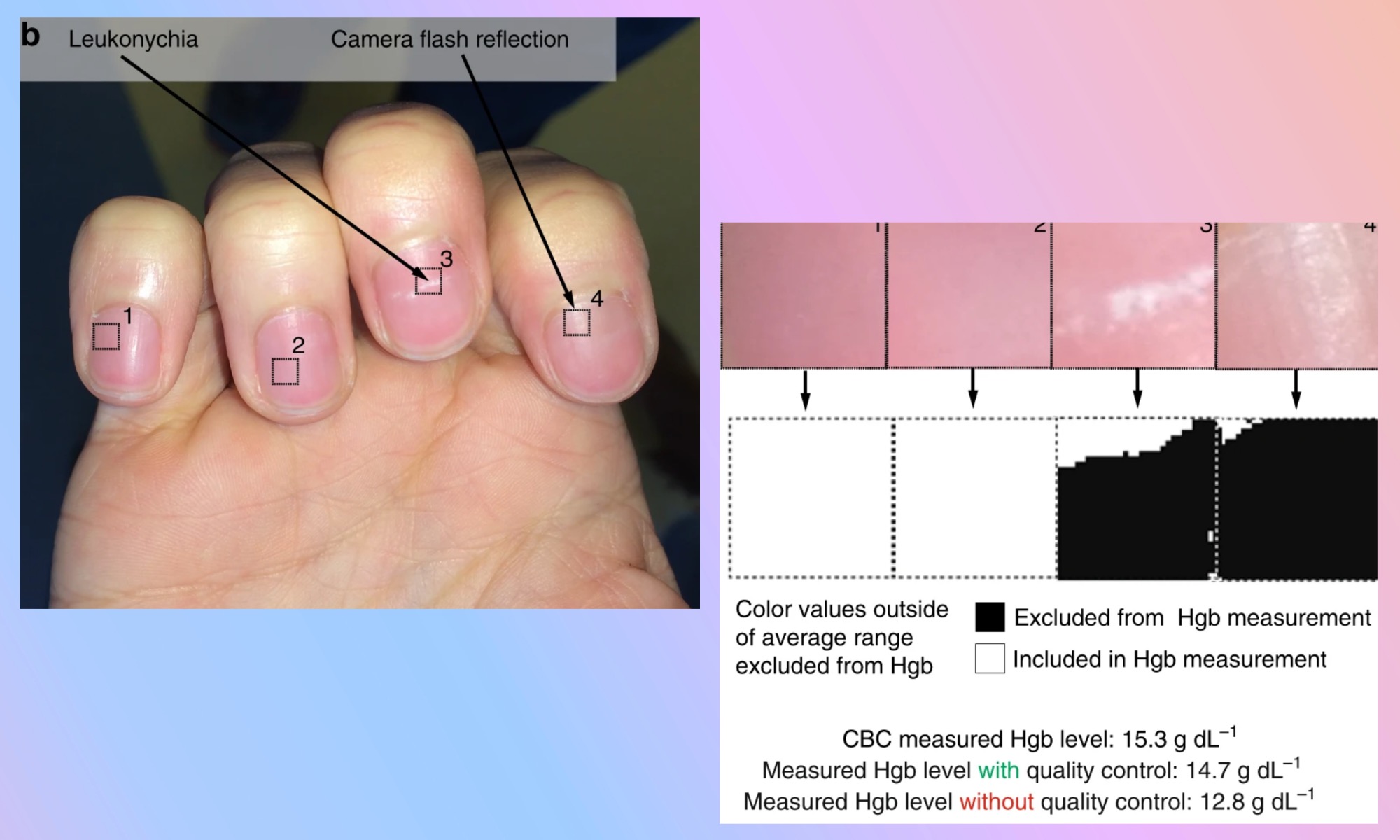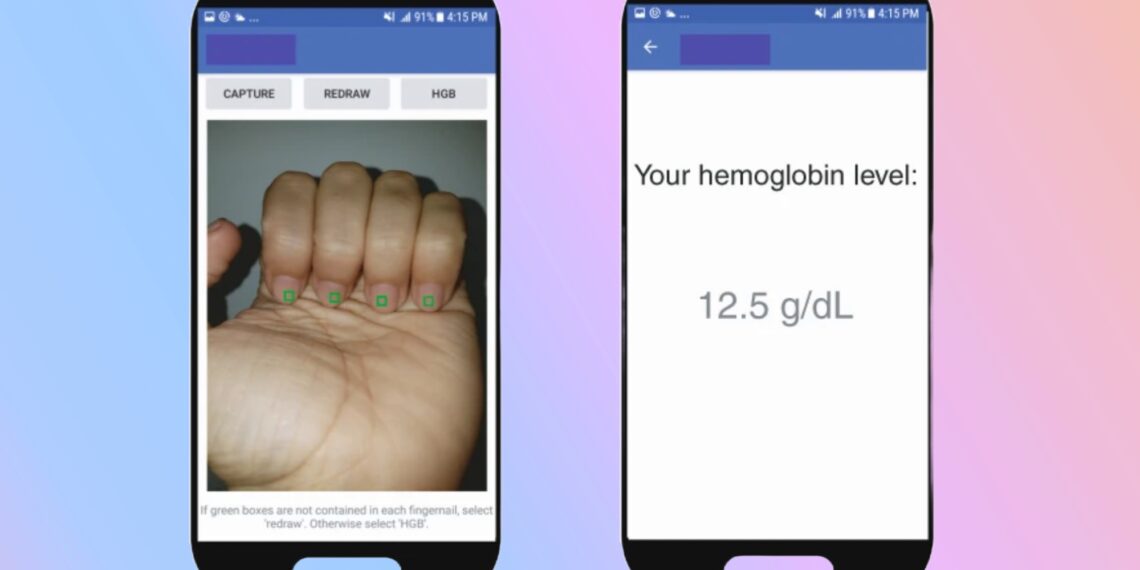Select Language:
Approximately two billion individuals globally are affected by anemia, a blood disorder characterized by a deficiency in red blood cells or hemoglobin (Hgb). This condition leads to a decreased capacity to transport oxygen throughout the body.
Chronic anemia has serious health repercussions, including the risk of heart attacks and organ damage, particularly for pregnant women who face higher vulnerabilities. Traditionally, diagnosing anemia necessitated a visit to a healthcare facility to undergo blood tests like CBC, Hemoglobin and Hematocrit analysis, or peripheral blood smear evaluations.
Imagine being able to snap a selfie of your nails, and an AI-powered application tells you if you might have anemia. Researchers at Chapman University have made this a reality. The app provides a non-invasive, convenient way to assess potential signs of anemia with a high level of accuracy.
How Effective Is It?

This application has already reached over 200,000 users in the United States, completing more than a million tests as part of a medical investigation. According to the team behind it, the app can serve as a highly effective and scalable tool for monitoring anemia.
The research team reports that the app’s performance is comparable to standard laboratory testing, achieving sensitivity and specificity rates of 89% and 93%, respectively. Additionally, the app incorporates an AI-driven personalization feature for users already diagnosed with anemia, resulting in even greater accuracy.
This accessible digital solution allows hundreds of millions of individuals to routinely check their hemoglobin levels without the need for costly blood tests at clinics.
In 2020, another company named Sanguina launched an app called AnemoCheck for individuals with chronic anemia. While that app was designed more as a lifestyle tool and didn’t seek regulatory approval, it paved the way for further assessments. A similar application was tested in India, demonstrating its effectiveness for public health screening.
Key Advantages

Experts emphasize that this app should not replace traditional medical tests or aim for self-diagnosis. Instead, it acts as a preliminary alert system that encourages users to consult healthcare professionals if they notice worsening conditions.
“The app holds particular significance for individuals with chronic anemia, including those with kidney issues or cancer, as they require frequent monitoring,” the research team notes. The personalization feature significantly boosts accuracy within this target group by up to 50%.
The ultimate aim is to facilitate self-monitoring and enable early interventions from healthcare providers without the delays associated with lab result processing. Interestingly, the app also includes geolocation capabilities, creating what the team describes as “the first county-level anemia prevalence map in the U.S.”
The experts involved in this endeavor hope that the app will enhance public health initiatives by allowing broad-scale anemia screenings, coupled with regional prevalence mapping. More in-depth information about the project can be found in the Proceedings of the National Academy of Sciences (PNAS).






